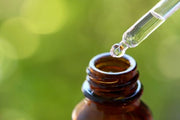We try to separate fact from fiction about how CBD oil can help runners. What does it do, what are the benefits of CBD for runners and is CBD right for you.
Although CBD oil and cream has only been in the spotlight for a few short years, it’s clearly being used amongst those in the running community.
Whether running city streets, or off the beaten path and into the woods, or up in the mountains, whether training for a marathon, or simply running for pleasure, or to stay fit, CBD has become an everyday staple for many people who run regularly.
The benefits of CBD result from the way cannabidiol brings balance to the body’s endocannabinoid system.
If you’re a runner you’re likely familiar with the endocannabinoid system without even knowing it.
A “runner’s high” (that happy, alive, engaged feeling) can be similar to the “high” from THC. They are both considered to be directly connected to the endocannabinoid system.
Running for a long period triggers the release of the anandamide (some call it the “bliss molecule”) a neurotransmitter and cannabinoid produced in the brain that binds to cannabinoid receptors and has a very similar structure to THC. It’s the chemical for putting you in “the zone” as well as for producing the high cannabis is known for.
But what about cannabis without the high for people who like to run? Specifically CBD.
While CBD doesn’t activate cannabinoid receptors in the brain, it has shown to moderately inhibit the degradation of anandamide by working against the enzyme responsible for breaking down the bliss molecule.
What this means for you, as a runner, could be an increase in the runner’s high you experience. Of course most runners who use CBD aren’t exactly doing it to increase the natural high they experience. CBD is commonly used to regulate pain, soothe sore muscles, and reduce inflammation; it’s these reasons CBD for runners makes sense.
CBD for Runner’s Aches and Pains
For decades the common go-to for any athlete in pain has been over the counter medications, like Aleve, Advil, and Tylenol. They are affordable, accessible, and (in most cases) dependable for managing pain. But the OTC medications can come at a cost.
The major adverse reactions to these wildly popular pain killers include negative effects on the gastrointestinal tract (GIT), the kidneys, and the blood clotting system. Research indicates that one in five chronic users of pain killers will go on to develop gastric damage. The side effects of OTC pain medications/anti-inflammatories aren’t fun. This is exactly why so many runners and other athletes have discovered CBD and benefited from it.
Many distance and multi-sport athletes have turned to CBD Oil and CBD creams as part of their pain management regime.
How exactly does CBD work for pain and inflammation? There are three million pain receptors found throughout the body. When we experience pain, cells that release pain-producing chemicals are activated and eventually travel to the spinal cord where pain signaling messages are then conveyed to the brain.
OTC meds work for pain by blocking the production of prostaglandins, a substance that is released by the body in response to injury and illness. Prostaglandins are responsible for causing pain, inflammation, or swelling….all of which are common in individuals who regularly run long distances or engage in other endurance sports.

CBD, on the other hand, works with your body’s own endocannabinoid system. While CBD does not bind directly to either of the body’s cannabinoid receptors, it does bind to a receptor which mediates pain perception, inflammation, and body temperature.
At high concentrations, CBD has also been shown to activate the serotonin receptor which is largely associated with the anti-depressant effects the cannabinoid is known for.
Aside from its connection as one of the “feel good” chemicals in the body, serotonin is also responsible for several other neurological and biological processes in the body including addiction, appetite, anxiety, sleep, and pain perception.

CBD May Help Reduce Inflammation
CBD is also a well-known anti-inflammatory. When a person experiences inflammation, signaling proteins, known as cytokines, are synthesized and secreted by immune cells. Cytokines are the moderating factors that help balance the onset and resolution of inflammation. One of the ways CBD is able to fight inflammation is by suppressing the production of pro-inflammatory cytokines. CBD has become extremely popular in the running community as a natural way of reducing inflammation.
Using CBD for Post-Run Recovery
Pain and inflammation aren’t the only thing runners are using CBD for. This non-psychoactive cannabinoid just so happens to be excellent for post workout recovery. A hard run can call for serious recovery.
After an intensive run it is not uncommon to feel sore and tired. Some runners even get nauseous after a hard run. After a long workout or run there’s nothing better than taking time to relax and recoup. Several studies indicate that CBD has a beneficial effect on mood, stress, and sleep. If you are looking to relax after a long run, CBD contains the soothing benefits you need when deep relaxation is necessary. So, not only is CBD thought to be anti inflammatory, it may also help with anxiety and stress.
Where THC is known to heighten anxiety in some people, CBD actually has the opposite effect and can work as a relaxant by reducing autonomic arousal, those physiological changes that occur in the body during times of “flight or fight”. CBD is so adroit at stimulating relaxation that it is known to counteract the paranoia and anxiety sometimes caused by high concentrations of THC.

CBD Can Help Runners Sleep
CBD has also shown to be helpful for getting sleep, something vital for post run recovery. Not getting enough sleep after a long run or workout cannot only increase your risk of injury, but also stop any gains you might have made.
If you’re interested in top performance on the trail or roads, you’ve got to get enough sleep. Think of it like this: the longer and better you sleep, the better your body and mind can replenish their energy. You’ve got to give the central nervous system (CNS) plenty of R&R if you want to train well. Many studies have pointed out CBD may improve sleep!
The CNS is responsible for pain response, reaction time, and triggering muscle contractions. If you don’t let it recoup, you’re never going to be on top of your game. Without the proper rest your body needs, muscle growth and recovery begin to deteriorate and the CNS is unable to recharge your batteries. If you’re not getting enough sleep after a hard run, you’re likely to feel unmotivated and tired the next time you’re ready to workout.
Sleep also helps your body repair damaged tissues, but if you’re not getting enough sleep for the body to heal itself, post workout is going to be negatively impacted.

CBD certainly isn’t a cure-all for every problem runners might experience. But it sure can help. Not only does it reduce pain and inflammation, but it’s considered safe, well-tolerated, and doesn’t contain all the unpleasant side effects associated with OTC meds.
Runners who push themselves on the daily may need more milligrams of CBD than those who run only a couple of days a week. Everyone responds differently and the best way to find what works for you is to experiment with different dosages until you find what works for you.
You might want to start with 10 mg per day and work yourself up to whatever dosage ends up offering you the relief you need. Just like any new supplement you’re adding to your routine, you might want to talk to your doctor first. If you need further information contact us and we can provide you with sites that list health practitioners in your area that are familiar with CBD.
There are also several was to take CBD, from CBD Oil, CBD Creams and even CBD Gummies. You just need to find out which is the most convenient for you.
No matter how you take it, one thing is certain: CBD is everywhere. We’re thankful that it has entered the world of endurance sports to benefit athletes with their performance and recovery.





